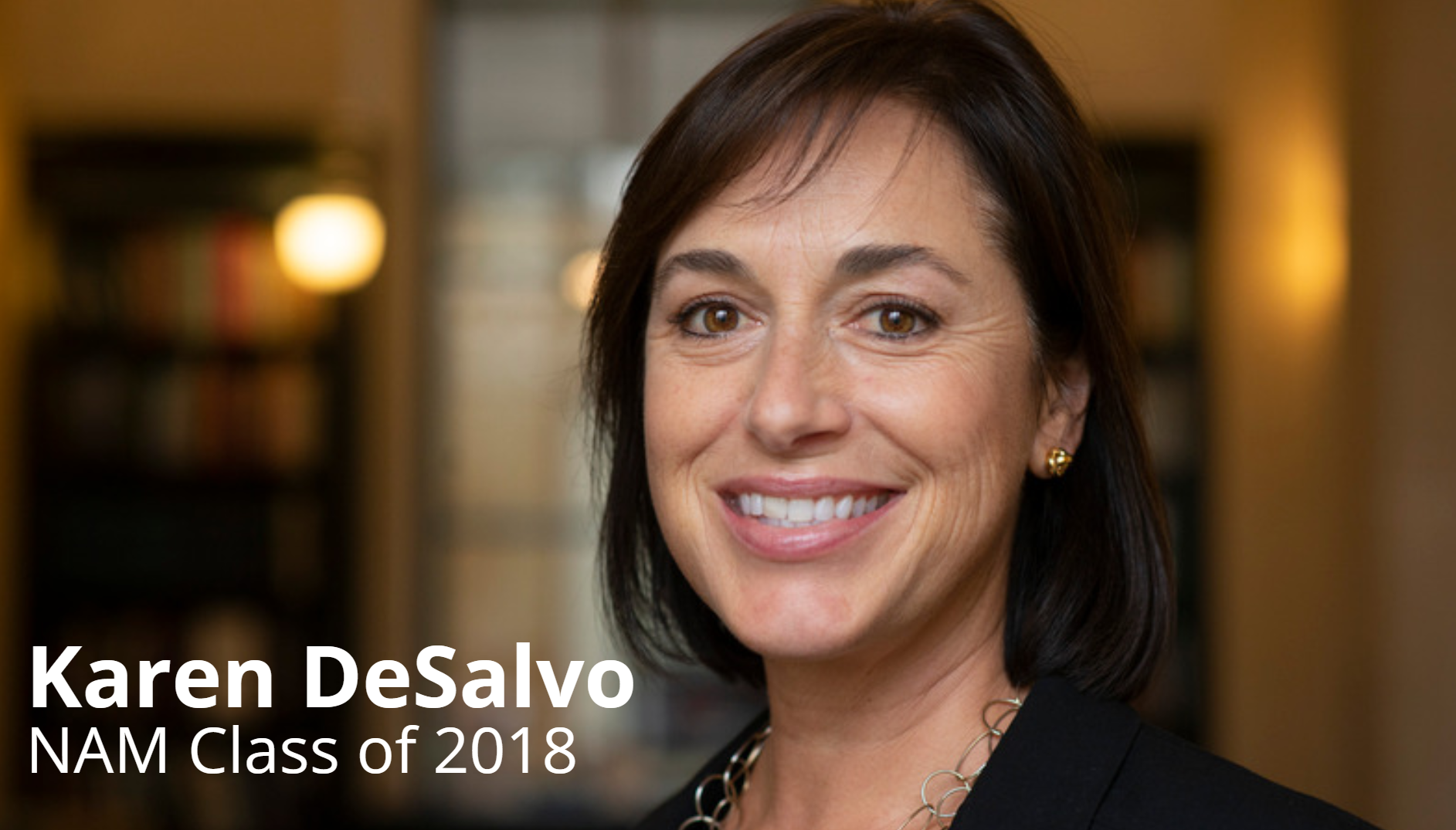Karen DeSalvo, MD, MPH, MSc, is a professor of medicine and population health at Dell Medical School. DeSalvo served as acting assistant secretary for health at the United States Department of Health and Human Services (HHS) in the Obama Administration. Under her leadership, HHS set and met historic goals in payment reform, supported transformed models of care delivery, including in primary care, and changed the approach to information distribution in the health system.

She also served as the national coordinator for Health Information Technology, where she set national strategy and policy on health IT and championed interoperability in health settings. Prior to joining HHS, DeSalvo served as New Orleans Health Commissioner where she led a transformational effort to address health challenges, including violence, nutritional and physical fitness and mental health, and led the re-establishment of a community public hospital.
DeSalvo was previously professor of medicine and vice dean for community affairs and health policy at the Tulane School of Medicine. She is a member of the National Academy of Medicine and the Medicare Payment Advisory Commission and serves on the board of directors for Humana. She earned her medical degree and Master of Public Health from Tulane University, and master’s degree in clinical epidemiology from Harvard School of Public Health.
Describe one of the proudest accomplishments of your career.
DeSalvo: The theme of my career has been to bring health to all people through improved access to quality health care and improvements to the public’s overall health. My actions to achieve this range from local efforts to re-engineer the health system of New Orleans after Hurricane Katrina, to national efforts to set historic goals for a value-based care system, including efforts to dramatically improve availability to drive insights. My work now is focused on catalyzing a national effort to create a durable value proposition for addressing individual and community social determinants of health.
What do you see as the most urgent or important current challenge in health, medicine, and/or science?
DeSalvo: Globally, we must establish a sustainable health system that converges the best of medicine, public health, technology, and the social care sectors to address all health determinants, including moving upstream to meaningfully address the social determinants of health.
What developments are you most excited about in your field? What gives you hope for the future?
DeSalvo: We are at an exciting time in history to advance the public’s health. This is largely due to the availability of data, sophisticated analytics, and other technology applications that can advance a range of health insights and allow precision medicine and precision public health.
Views expressed are those of the interviewee and do not necessarily reflect the views of the National Academy of Medicine.

